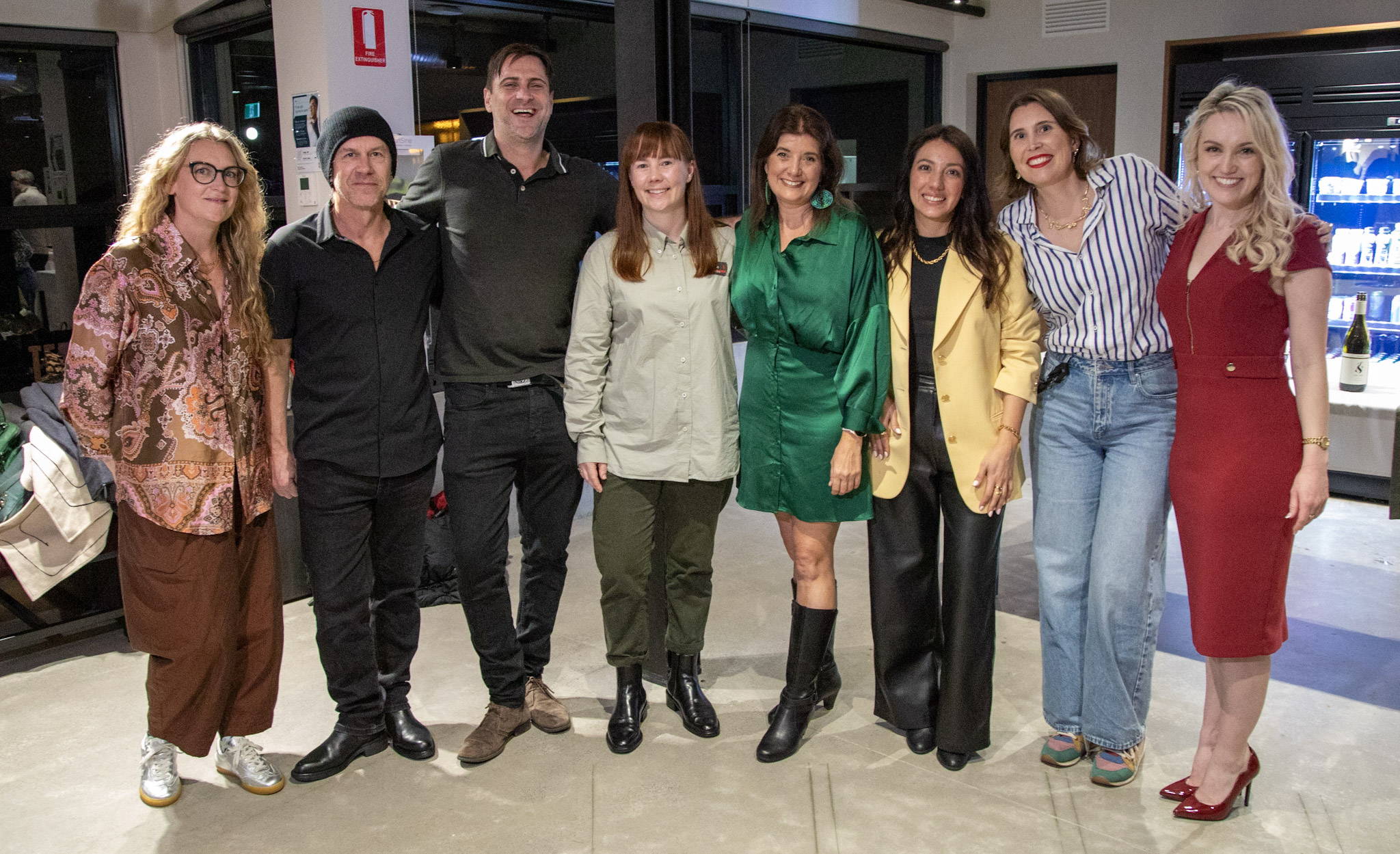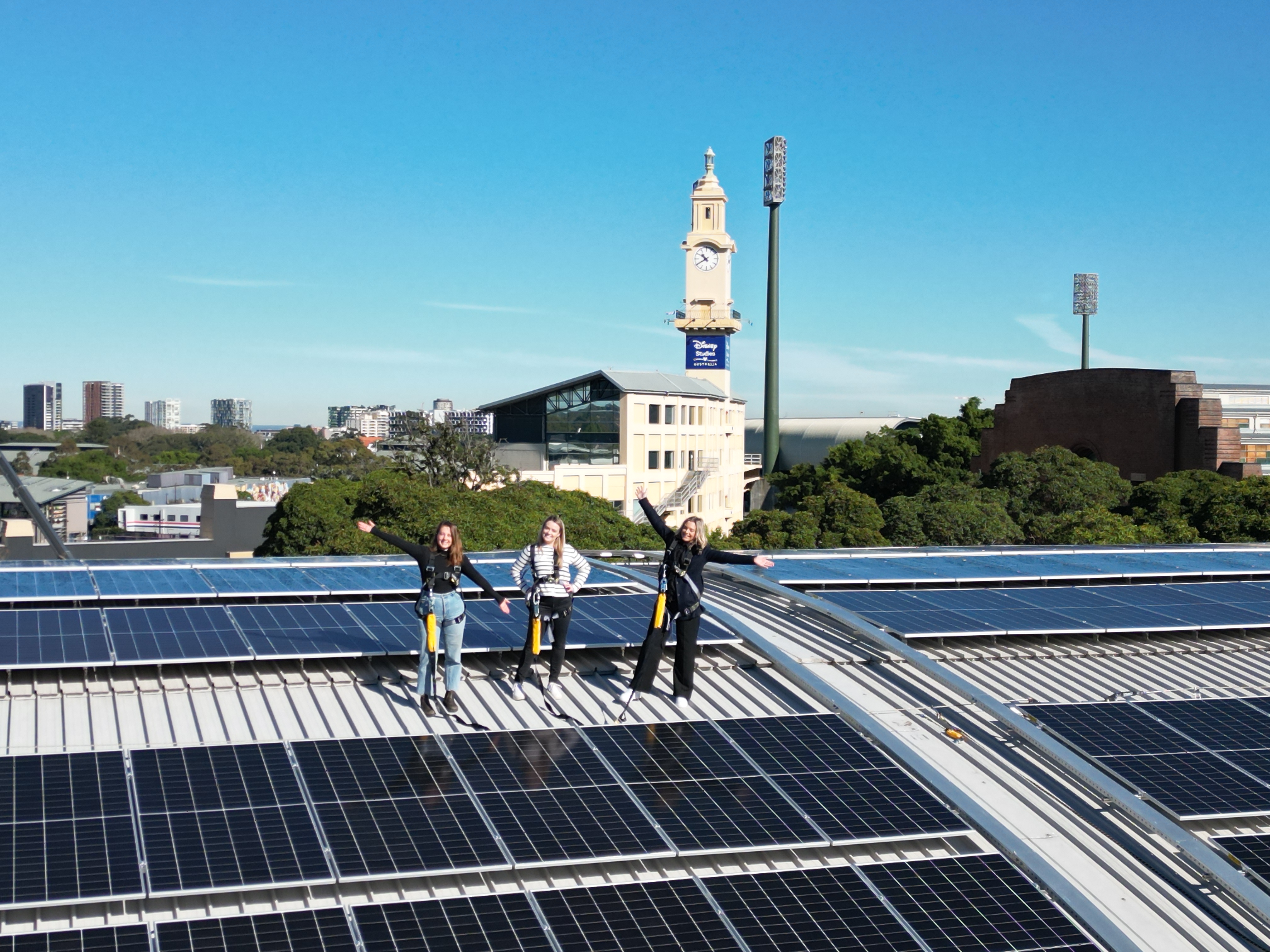Exploring the Insights that Have Emerged from SSA’s Sustainability Supervisor Training
While a range of insights have emerged from experts to lay the seeds for a new era in film and TV, one central theme has shone through.

Sustainable Screens Australia’s groundbreaking Sustainability Supervisor Training has revealed key insights from experts across departments, specialties and cultural backgrounds, laying the seeds for a new era in the film and TV industry.
“The program represents a culture where generous knowledge sharing is the foundation of how we learn and grow,” says SSA Executive Director Maree Cochrane.
“By sharing knowledge from adjacent industries and sustainability theories as well as sustainable production techniques, the participants have received a depth of knowledge to bring into their new roles.”
The spectrum of topics covered over six weeks of learning includes:
- climate change & biodiversity
- systems thinking & solutions
- politics, people & the philosophy of habit change
- advocating for the work
- the power of data and waste as a resource.
First Nations First
When developing this program for an Australian audience, it was essential that those working in the sustainability space learn from the custodians of Country. Nidala Barker, the program’s First Nations Advisor, gave the participants a profound glimpse into the importance of First Nations First and delved into what Country means.
Through a combination of singing and storytelling, she illustrated the knowledge and stewardship of First Nations people, passed down over thousands of generations. This knowledge and ethos grounded the learning of the program.
What Makes a Good Sustainability Supervisor?
Program participants learnt that a core part of sustainability is about building enduring relationships. “Always make the job about collaboration,” Sustainability Consultant Heidi May said. “As a sustainability coordinator, your first job is to listen. Meet people where they are, understand their day-to-day, and collectively learn from experiences to build and introduce new systems and practices that work for everyone involved.”
Lily Rolfe was Sustainability Coordinator on Carnival Films’ recent production All Her Fault. ‘All Her Fault’ implemented a range of leading screen sustainability practices. Lily agreed that collaboration is key to success. She said: “The greatest success comes from working with crew. Listen to their challenges, stay curious and offer practical solutions. That’s how you build trust and ultimately push more boundaries.”
Leading a session on ‘Climate, Carbon & Credibility: Understanding Emissions and Avoiding Greenwashing’ was Katrina Bullock, SSA Board Member and General Counsel for Greenpeace Australia Pacific.
“Just like a movie script comes to life through the collective contributions of writers, directors, cast, and crew, your sustainability strategy requires input and buy-in from every part of the ensemble,” she said.
Katrina also emphasised the importance of engagement across the board. “Bring your partners, suppliers, and stakeholders into the conversation early, and make them a key part of the planning process. When everyone knows their role and is committed to reducing their carbon footprint, sustainability becomes more than just a buzzword. It becomes a core and proud part of the production’s DNA.”
Harriet Spark, Producer at Grumpy Turtle Films led a session exploring biodiversity and behaviour Change. Harriet was the trailblazer of ‘Strawkling’ - a community campaign in Sydney which led to over 12,000 straws being collected from the ocean within 12 weeks. She guided participants to brainstorm their own ideas for on-set campaigns that could create sustainable behaviour change.
%20Large.jpeg)
Sustainability, Systems Thinking & Solutions
Sara Rickards, a regenerative practitioner and the program’s Lead Facilitator, introduced the concept of sustainability systems and how we can go beyond sustainable to regenerative. “Sustainability can mean different things to different people and that’s perfect because there’s so much work to be done, and we all need to find the thing that we care about.”
The participants also heard case studies on how systems thinking can be practically applied from Stuart Muir Wilson, Director of Design for Humanity INC, whose background and career is deeply entrenched in permaculture.
Bringing this foundation into a production context, Andy Pappas, owner of SK Industries and Unit Manager on ‘All Her Fault’, explained his approach of “choosing three things to focus on changing and doing those well”, rather than a scattergun approach of many little actions that are more difficult to manage.
Politics, People & the Philosophy of Habit Change
At SSA, we often refer to Screen Well as an ‘adjacent’ organisation because their mission of creating a more mentally healthy screen industry is so intertwined with creating a more environmentally sustainable one.
The participants heard from Company Director and founding partner Ben Steel, and Managing Partner Jonathon Dutton on understanding screen industry culture, the challenging work conditions that can impact mental health and how to prepare for them.
Sharing insights on Screen Well’s Leadership Matters Report, they showed how mental health impacts on creative and commercial outcomes, and how leaders can play a pivotal role in improving these outcomes for long-term sustainability.


Communications & Engagement
Mother and daughter sustainability power duo Tilly and Ellie Asthon, who have worked as Sustainability Advisors on various productions and developed the 2024 Sustainability Coordinator pilot program in Wales that formed the basis of this training, highlighted the importance of an effective communication strategy.
“‘Why’ is the most important word of the job and how to approach this role,” said Ellie. “Not just why you’re doing this work, but connecting with what someone else's ‘reason why’ will be. Better communication builds better relationships across and beyond the production pyramid.”
The Power of Data and the albert Toolkit
The participants were given a masterclass in the albert toolkit. Steve Smith, Sustainable Production Consultant at Picture Zero, explained the importance of gathering accurate data on a production while ensuring urgent action to decarbonise.
“We know what needs to be done, halving production emissions by 2030, so let’s work collectively to take the actions required, always focusing on the biggest impact areas of travel, energy and materials, including food,” he said.

Waste as a Resource
In the final session, Earthed Consulting Co-Founder and CEO Jen Kyna showed how productions can tackle the global waste crisis by designing for longevity, reuse and ultimately recyclability, using Circular Economy principles and waste hierarchies.
NIDA Sustainability Manager Imogen Ross demonstrated how NIDA creatively adapted the standard waste hierarchy to fit its needs, showing that once systems are established, simply having conversations with people helps reduce waste enormously. She explained the three questions she bases her work on: WHERE do things come from? WHAT are they made of? WHERE do they go?
Imogen said the questions sound deceptively simple, but the answers can become complicated by “budget, location, waste management systems, design decisions, time restrictions and so much more”.
On All Her Fault, the art department achieved an incredible 95% recycling rate. Art Director Maxine Dennett demonstrated how the production prioritised social responsibility by working closely with communities to ensure meaningful reuse of materials, donating to asylum seekers centres and working with schools.
"The Sustainability Coordinators engaged with us and invited us to share the problems we were facing. We found that quite helpful because no one had ever asked us that before," said Maxine.


What’s Next
The breadth of learnings at the Sustainability Supervisor Training has been far reaching, but a powerful theme has emerged across every module: meaningful engagement with people across all levels and departments is the key to success in this role.
They will now be taking these learnings onto a paid production placement in their respective states before reconvening for a final in-person retreat. Stay tuned for more.










